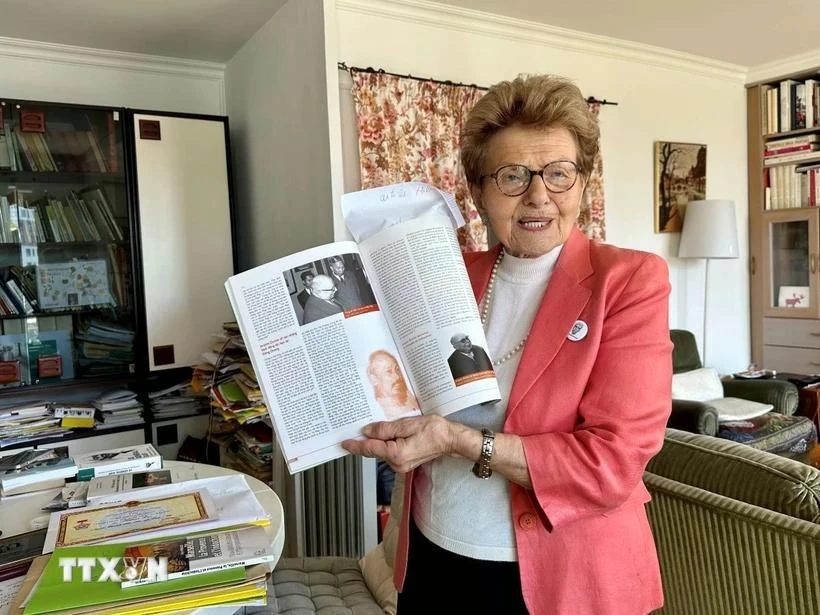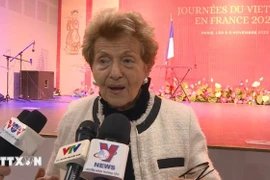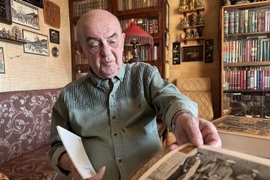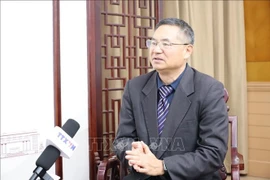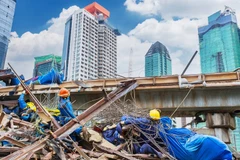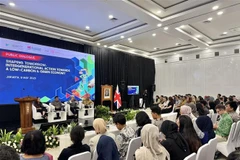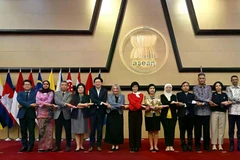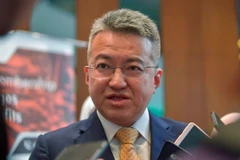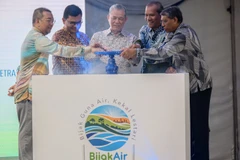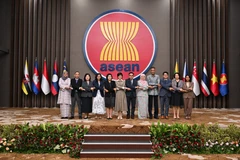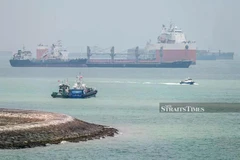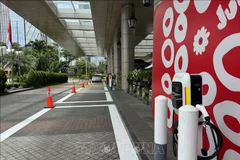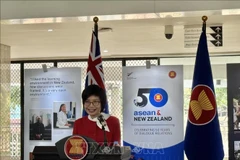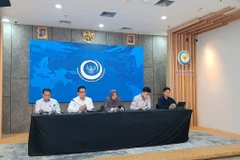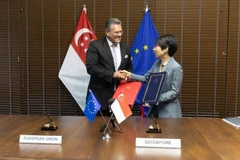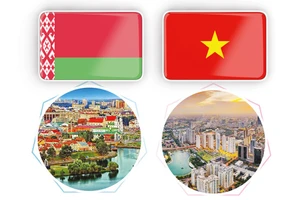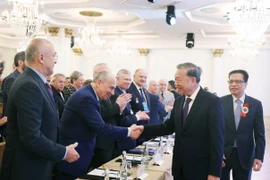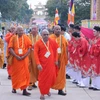Paris (VNA) - The will of the entire nation forged Vietnam’s victories in the past and underpins its success today, according to Hélène Luc, French Honorary Senator, Honorary President of the France-Vietnam Friendship Association (AAFV).
Granting an interview to Vietnam News Agency correspondents in Paris on the occasion of Vietnam’s 50th anniversary of the Liberation of the South and National Reunification (April 30, 1975-2025), Luc said that this brilliant milestone was the victory of the Vietnamese people over US imperialists. It was also the victory of the People's Army commanded by General Vo Nguyen Giap under the leadership of the Communist Party and receiving the support of all the people. It was the result of the struggle for national independence initiated by President Ho Chi Minh since 1945.
Assessing the transformation as well as the factors that have created the potential and position of Vietnam today after 50 years of national reunification, she recalled that in 1978 when she first visited the country, she witnessed people hungry and cold living in a city blackened by bombs, with old bicycles, and hospitals lacking equipment and medicine. Despite the hardship, the Vietnamese people still worked with an unchanged energy - the same energy they used to gain independence.
In 1975, the US imposed an embargo, difficulties piled up, Vietnam was isolated and the country was forced to make a choice. Vietnam decided to accept reality, which meant integrating into the globalisation process. Vietnam chose Doi Moi (Renewal), chose the path to prosperity, even though it had to be exchanged for contradictions. The visit of late French President François Mitterrand in 1993 helped break that isolation. Once again, Vietnam chose its own path, as it always did.
Reflecting on Vietnam’s extraordinary development, Luc marveled: “When Vietnam was reunified, some journalists claimed it would take at least a hundred years for the country to gain global standing. But just 50 years later, we’ve seen how influential Vietnam has become. It’s truly a great victory, not only in diplomacy but in peaceful development”.
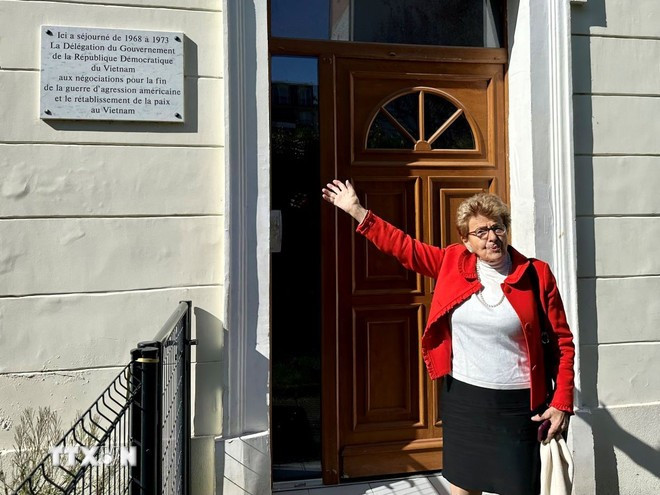
In response to a question about the significance of promoting national solidarity - the core spirit that led to the historic victory of April 30, 1975 - in the context of building and developing the country, Luc emphasised that the reunification of the country was a key factor contributing to Vietnam’s development. The solidarity between the North and the South, along with the economic and climatic advantages of each region, as well as the support given to ethnic minorities, have helped Vietnam become a middle-income nation. This is largely because much of the wealth generated has been used to improve the living standards of the vast majority of the population.
The AAFV Honorary President affirmed that when comparing Vietnam today with it in 1978, she saw a country that has preserved its unique traditions while also making remarkable strides in modernisation.
Luc attributed the successes achieved after the war to the will of the entire nation: the desire to expand relations with other peoples through its diplomats, thereby establishing diplomatic ties with almost every country in the world. As a result, Vietnam has signed free trade agreements with 60 economies globally and established comprehensive strategic partnerships with 12 countries, becoming the first developing nation to conclude such high-level agreements.
The agreement between Vietnam and France to elevate their relationship to a Comprehensive Strategic Partnership during the official visit of Party General Secretary To Lam, who was also State President of Vietnam at that time, to France in early October 2024 reflected a convergence of interests and a shared vision, on the basis of their commitments to respecting the United Nations Charter and international law, strengthening political cooperation to address global challenges, protecting national independence, and pursuing peace, security, and stability in the East Sea, based on the 1982 UN Convention on the Law of the Sea (UNCLOS).
She emphasised that today, more than ever, it is necessary to chart a path for the world where cooperation, mutual respect, and the well-being of all people are the driving forces of history, for a peaceful world./.
